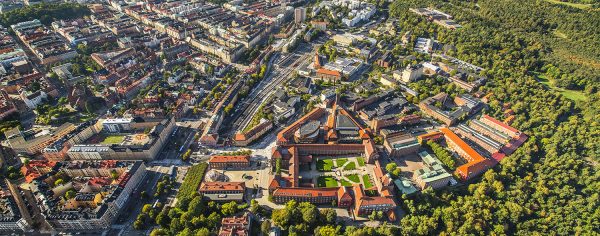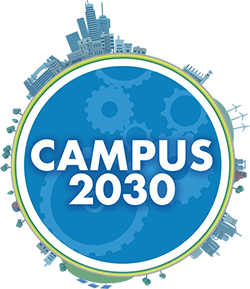Campus2030 – Enabling Systemic Solutions for Smart Roads

 Mission
Mission
- To create a fertile environment that serves as an important nursery of ideas for industry stakeholders, researchers and students to test new, smart transportation ideas making use of the full cross-disciplinary range of expertise available.
- To stimulate interaction with an open smart road digital platform, we will launch a Digital Twin of KTH’s road infrastructure including an augmented reality (AR) experience on KTH campus.
- To build a structured approach to help manage a systemic change towards the new realities of a sustainable transportation infrastructure sector, including a wide variety of challenges and opportunities coming from digitization.
Background
With the advent of smart transportation, infrastructure can no longer be seen as a static part of the solution, in which possible ‘smart’ IT components are merely placed within the body/surface of the road. Nor can ‘the road’ and it associated industry longer be operating as a separate part of the transport equation, as more integrated road solutions are needed.
Autonomous vehicles, dynamic charging of electrical vehicles and vehicle-to-infrastructure communication are a few good examples that all require a systemic solution in order to function sustainably. With this change of approach, infrastructure can no longer be seen as a static part of the solution, in which possible ‘smart’ IT components are merely placed within the body/surface of the road.
Integrated solutions constitute Cyber-Physical Systems (CPS) that promise to improve availability, safety, and efficiency while promoting and adopting sustainability as an innovation driver. The integration of more advanced technologies into the infrastructure requires up-front consideration of a number of aspects such as circularity (e.g. reuse, recycling), side effects and trustworthiness. To be able to move successfully forward from this traditional pavement engineering structure to the smart road which is improving society’s sustainability, we need to manage the change process.
Digital Twin with Augmented Reality Experience
Campus2030 will start a digital demo site in the very heart of KTH campus, which is based on the development of a Digital Twin of the road infrastructure and enables a dynamic interaction with users via Augmented Reality (AR) case-studies on campus. The Digital Twin essentially corresponds to multiple models and data sets that enable to virtually assess and experience the Campus, while being validated and upgraded through connections to the real world (based on real data).
Campus2030 is building further on the results and expertise generated from many different projects by the project partners including feasibility studies on electrified roads, development of control towers for geofencing and autonomous driving, pavement-sensor integration experiments, exploring the use of drones for road maintenance observations, building of augmented realities for enhanced user engagement, collecting of data to generate 3D models of infrastructure, the development of simulation software for infrastructure predications and autonomous driving guidance, and development of more general strategies and methodologies for dealing with advanced CPS.
Gender Data Gap
The transportation infrastructure domain is today still predominantly ’male’ and ’masculine’ which reflects in an unbalanced workforce and may result in organizational structures and technological solutions that are optimized towards the male perspective. With the increase of digitization a general increase in data dependency occurs which may further aggravate the risk that the transportation infrastructure field is optimized for only half the population.
Campus2030 is actively integrating an awareness of the gender data gap within its digitization activities in order to contribute to a diminished risk of data-bias.
Tidplan
Start 2020-09-01
Slut 2023-09-01
Partners
KTH, Innovative Center for Embedded Systems Center, Integrated Transportation Laboratories, 3D Interactive STHLM AB, Teknikkvinnor AB, Women in AI